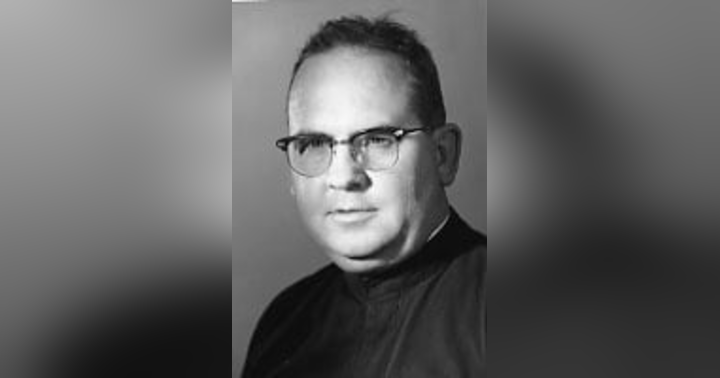10 Ways to be a Better Podcast Guest in Under 10 Minutes

You’re probably reading this because you’ve been invited on a show (maybe mine) and you want to be a better podcast guest. First off, congratulations - someone thinks you’re interesting and wants to hear more from you!
First off, why come prepared? Going on a podcast is like a first date. It's a first impression of who you are to thousands of potential new friends, clients, and customers. If you come unprepared and looking disheveled, what does that say about you and your brand?
Second, take the prep seriously. There's a good chance the podcast recording will live on the RSS feed...forever. People may be listening to you talk for the first time 20 years from now. That isn’t supposed to sound scary, just meant to highlight that this doesn’t disappear in days or weeks. Now let's get down to business - here are 10 ways you can be a better podcast guest in under 10 minutes.
- Microphone
Audio is what podcasts hinge on. If listeners can't understand you or the audio is bad quality, they simply won't listen. If you have one, ALWAYS use an external microphone. They will be significantly better than your computer mic. Don’t have an external mic? Airpods or another combo headphone will almost always be a step above the computer's mic.
Once you have your microphone hooked up, it's critical that you actually TEST it. The “test my microphone” feature is useful, but it's best to do a trial recording in voice memos or quicktime.
Doing a trial recording allows you to verify the sound is crisp, check for any echo heard in the room, and experiment with distances from the microphone. If you wouldn't listen to 1 hour of your trial recording audio due to quality, why would you expect the listener to?
- Camera and position in the frame
Even if it's not a video podcast, sitting up straight and appearing engaged is important for projecting your voice and showing your enthusiasm to the host.
Visually break the camera frame into thirds horizontally and vertically. Position yourself in the middle third of the frame, with your eyeline at the top horizontal break.
- Lighting
If you want to go above and beyond, optimal lighting involves a 3 point lighting system with a key light, fill light, and backlight. The most important is the key light, at a 45-degree angle to your face, and the fill light (less bright than the key) at opposite 45.
The most basic setup is using natural light from a window and a lamp for your key and fill which you can experiment with curtains or fabric over. See how in this photo the right side is brighter and there's a slight shadow on the left? This is from differences in brightness.
If you really want to go down the rabbit hole on studio lighting, Kevin Shen has a great Youtube video on creating awesome lighting.
Lighting is a bit advanced and it's okay if you don’t have time or patience to perfect it. You can be a better podcast guest by just avoiding some major lighting pitfalls.
Avoid having light directly above or behind you, or being too close beneath to a light source like these photos.
- Cleared time and mental headspace
Take the podcast seriously and devote your full attention to it. Avoid distractions like phone notifications or scheduling meetings immediately after the recording.
Being present and engaged will make a positive impression on the host and audience. When you're in a hurry or not fully there, you rush responses and the audience hears that you don't care about what you're saying.
- Focus on having a conversation
Don't worry about the perfect answer or worrying about speaking to an audience. I tell my guests, imagine you're sitting down with me at a quiet bar to have a friendly conversation.
You've likely listened to podcasts before. To be a better podcast guest requires a deemphasis on the interview part and an emphasis on just talking with the host like you would a normal conversation.
- Know your talking points
Review any outlines or questions provided by the host in advance. Thinking about stories, lessons, or educational points that relate to the outline or questions in advance will help you process the information and feel more confident.
Things that do well on podcasts:
- Frameworks (here’s how to do something)
- Cocktail stories (what is your go-to story that draws a crowd at a party)
- A revelation (an insight or idea that changed how you think/do something)
- Facts, figures, and DOLLARs (giving specifics about numbers gives context and people love hearing about money if applicable)
I provide my guests with a high-level outline of questions, thoughts, and possible directions for the conversation. It's not comprehensive but will give them an idea of what to expect. If your host hasn't given you one, ask for a precall! Here are my notes for a recent episode.
- Answer length
Aim for a balance between providing a concise answer and offering enough context. Avoid giving one-word responses or excessively long monologues. Share an answer and provide relevant context, such as a quick story or supporting fact.
By aiming for the middle ground answer length, you allow the host more context and possible directions to guide the conversation. Abrupt responses shut your host down. Too long and you lose the audience. Give your host flexibility by opening up more doors for them to explore.
- Take your time
It's alright to have a pause and gather your thoughts before responding. Avoid using filler words - you don't need to fill the dead air! The host can edit out any moments of dead air, and pausing to think shows thoughtfulness and intelligence.
- Have something to give people
Use the podcast as an opportunity to showcase your expertise and provide value to the audience. Remember, this is a chance to make a first impression on thousands of people. Wouldn't you want to be remembered as a giver?
At the very least, have a personal or business website to share. If possible, offer a discount, a template, or any other resource related to your expertise that listeners can access. Not having anywhere to send potential friends, customers, or clients to learn and get more from you is a missed opportunity.
- Be yourself and have fun
Remember that podcasts have a lasting presence, so it's important to be authentic and avoid spreading misinformation.
If you're uncertain about something, it's better to ask the host to clarify or listen to the recording before it is released. Show your energy and have fun during the interview to engage the host and make a positive impression on the audience.
It doesn't take a whole lot to be a better podcast guest. Following these quick ten steps and a little preparation time and you're sure to break a leg!








